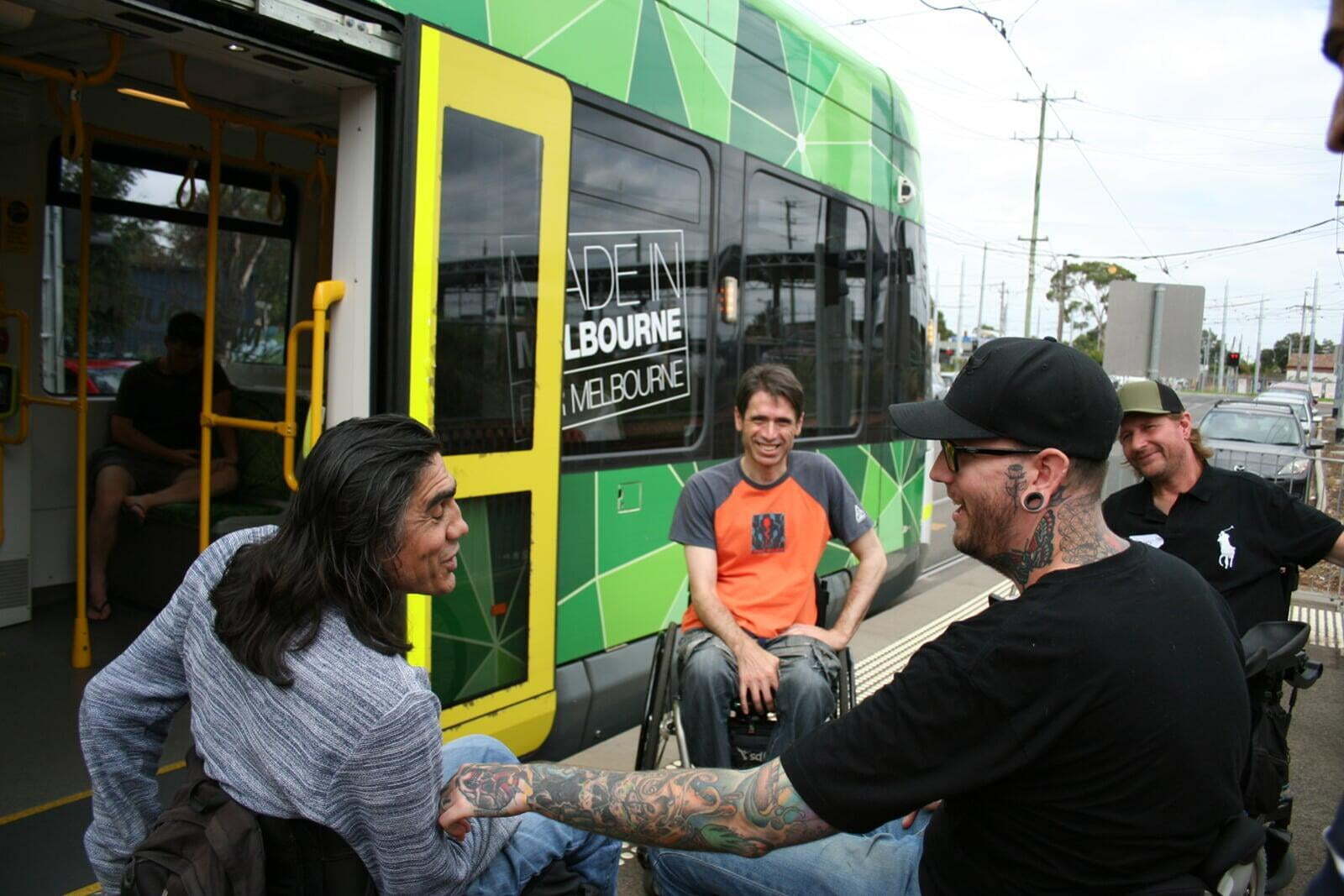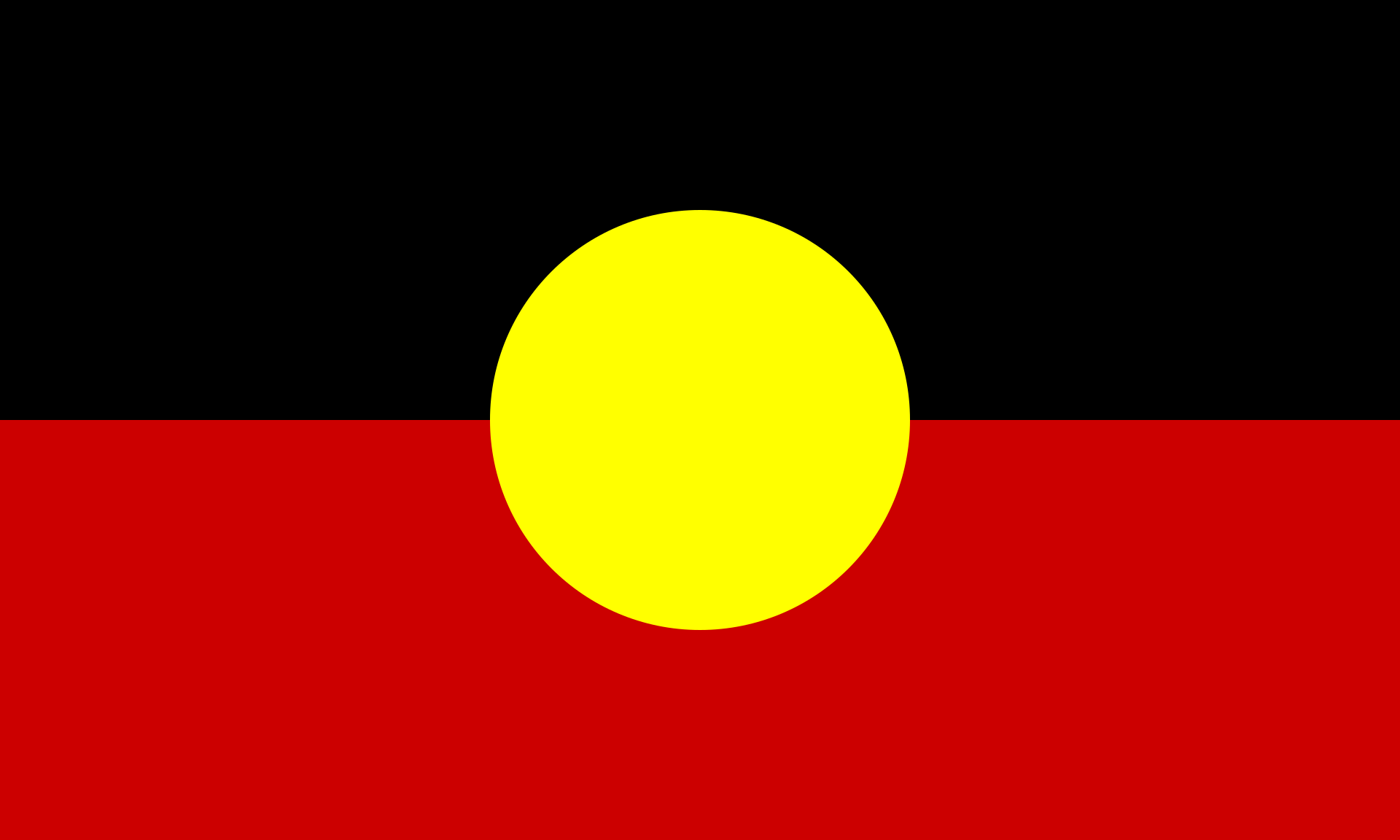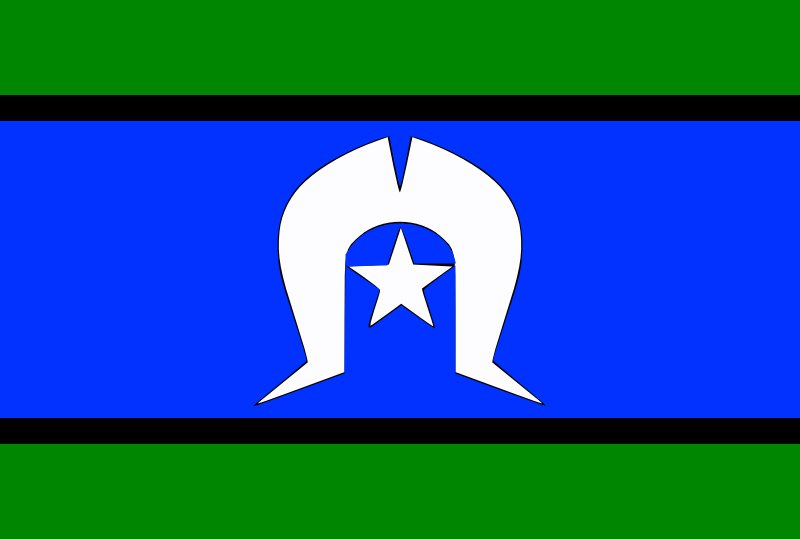Story by Ian Baker
If a single theme has sustained AQA Victoria from its earliest days, it is the belief that a person living through a profoundly distressing change can benefit from a relationship with someone who has taken a similar journey.
Expressed at first in compassionate visits from AQA staff members to Spinal Ward patients at the Austin Hospital in Melbourne, this outlook quickly became a defining feature of the organisation, developing and expanding under the broad title Peer Support.
Its appeal to head and heart was strong enough in 2007 to persuade board member Peter Trethewey to take on leadership of AQA as chief executive, departing Austin Health, where he had managed the Victorian Spinal Cord Service.
“I was ready for change,” Trethewey reveals. “But the other thing was that in my prior clinical work as a social worker, I had worked alongside peer support people who came into the Austin from AQA and other organisations, and I saw the value of what they were doing.”
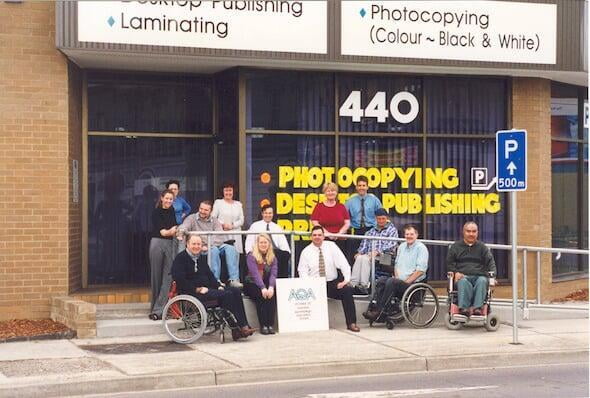
Drawn to act
Like AQA’s information and personal care services, Peer Support began as a twinkle in the eye of the organisation’s founding CEO, Ian Bennett. Bennett recalls himself as having been drawn to act after he met a young Spinal Ward patient with paraplegia.
“I was visiting and there was a young guy there who was pretty upset,” Bennett remembers. “He was about to be sent home and he didn’t know whether he was going to be able to drive again – and do other things for himself.
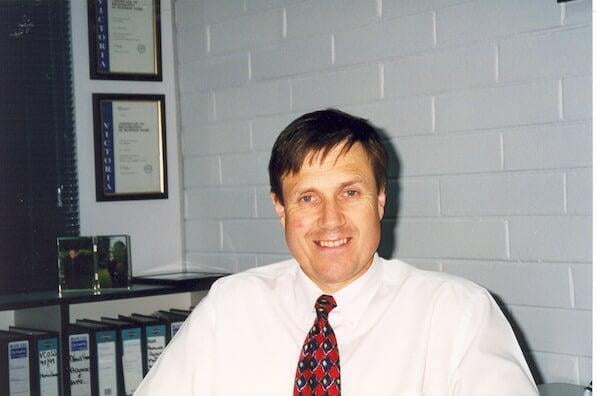
“I’m sitting there thinking: Hang on mate, you’re a para. You can drive again.
“I drove away and I thought, there’s something really missing here.”
Bennett, who had spent 16 months with the Spinal Unit recovering from a car crash, arranged a meeting with its long-time director, Doug Brown, who acknowledged that regular visits from injured peers could be helpful.
Brown pointed out that it was important the visitors be selected for their ability to connect helpfully with patients. “I agreed,” Bennett says. “We didn’t want anyone to be making people feel worse.”
Breaking ground
Late in 1989, Bennett invited AQA employee Greg Kidd to coordinate a peer support program. Kidd, who had quadriplegia from a C4-level spinal cord injury, reported after two years in the role that his enthusiasm for the project had grown.
“Although I was initially intimidated by the ground-breaking it demanded,” Kidd wrote for AQA’s 1991 Annual Report, “I am delighted by the contacts that have been made and the interest that other service providers have shown. I particularly acknowledge acceptance by staff at the Austin Hospital Spinal Injuries Unit.
“I confess to [having been] very reluctant to frequent a [spinal] unit again, partly because of some lingering bad memories of my own hospitalisation (in another state), and partly because my New South Wales counterparts warned me not to expect much cooperation from hospitals,” Kidd wrote. He said he had been gratified that territorialism from professional caregivers in Victoria had been minimal.
Volunteer register
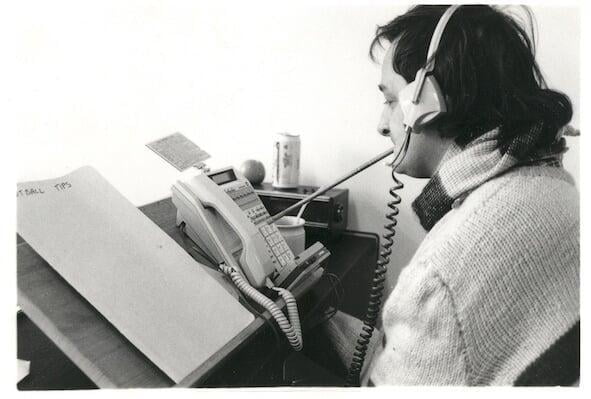
Kidd led Peer Support for nine years, and when he left AQA in 1998 he had built firm foundations for what was to come. His outreach extended well beyond the weekly visits he and his flamboyant colleague Ray Kennedy made to people recovering at the Spinal Unit or, after it opened in December 1993, the Royal Talbot Rehabilitation Centre at Kew.
He sought to visit people recently discharged from hospital at their homes, and he extended the program’s reach to regional centres by appearing at spinal cord injury clinics run by the Austin.
Kidd also began the register of volunteer peer support workers, both in Melbourne and regionally, that would grow stronger and more capable over the next 20 years.
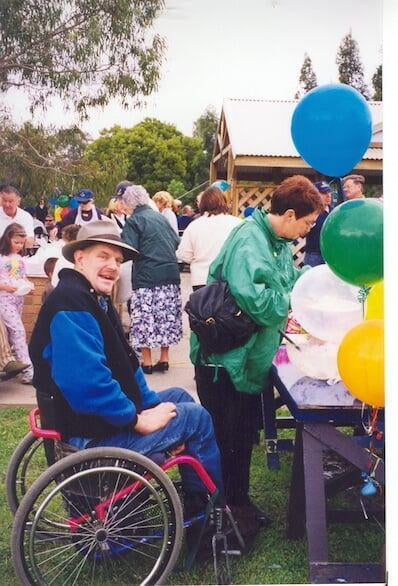
To succeed Kidd, AQA employed Baden Whitehead, a former shearer who had C6-7 quadriplegia. Bennett recalls Whitehead as “a passionate guy” and ideal for the job.
Whitehead reported, after a year in the role, that he had begun by assembling an information handout that listed service providers and useful organisations. Bennett credits Whitehead with founding the What’s Out There (WOT) days run by AQA at Royal Talbot – at which suppliers of disability supports showcase products and services, and a panel of former patients tells of life after rehab.
Trethewey, looking on at the time from his position on the AQA Board, saw Whitehead as charismatic and “a really significant force in establishing what I would consider to be the new wave of peer support”.
When Whitehead moved to an Otways town in 2002 his work was taken up by Naz Erdem, who had arrived at AQA eight years earlier as a green 24-year-old volunteer. Erdem had been mentored by long-time NewsLink editor Ian Williams, and by Whitehead.
“Naz started helping Williams put the newsletter together, and then I employed him to work there and in our desktop publishing business, Copies Plus,” Bennett says.
“Then I realised Naz had some other skills: he got on very well with people. Baden had worked that out, and he said he wanted Naz to work in the Peer Support department with him.”
There was this kid…
“There was this kid who came in when he was 19, or 20-something,” recalls Robyn Canning, who as Executive Assistant helped steer AQA over more than two decades. “He used to rock in and out of the office.
“One day someone said to me: ‘Naz is going to do some work for us.’
“I said: ‘What’s this guy going to do? All he wants to do is sit around and have a chat, have a smoke, and have some laughs.’
“I never thought he’d be where he is today.”
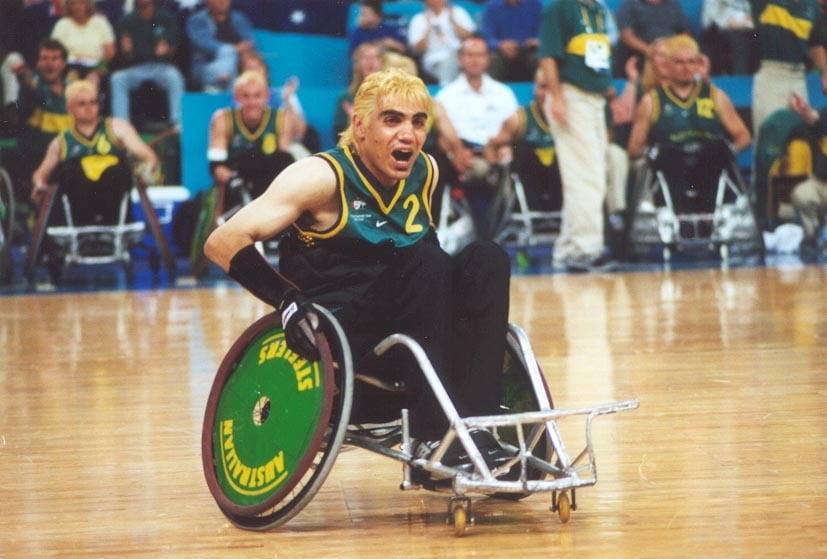
Appearances did deceive. By the time he arrived at AQA, former truck driver Erdem had completed a computer operating certificate and earned a diploma of computer programming. He had taken to study on the advice of Kidd, whom he had met at the Spinal Ward while recovering there from a diving accident.
Erdem inherited from Whitehead a department that had combined the Information Service and its newsletter with Peer Support, and over the next 18 years he would transform both components – and represent Australia at five Paralympics.
Trethewey says: “You can see Whitehead’s thinking flowing through Naz’s work today, and through Peter Van Benthem’s work.”
Van Benthem, a former electrician who has high-level quadriplegia from a 1999 motorbike crash, had been working with Erdem as an information officer. He was invited to coordinate and expand the Peer Support volunteer team.
Intensive training
“To begin with we had maybe a dozen peer support volunteers,” recalls Van Benthem. “They were people we had got to know personally, who we were sure would be helpful.”
“It’s a lot more formal now,” Erdem observes, “but we try to come across as informal. We don’t want to go in with suits and ties and computers, because I think it’s not what people want to see and it’s not the image we want to leave with them.”
Peer support volunteers are now trained Peer Mentors, and their number has swelled past 100, which gives the team considerable scope for pairing people by age, gender, or locality.
“We don’t just say ‘John, we like you, do you want to go and see this guy at Royal Talbot because he likes Fords same as you,’” Erdem explains. “It’s not like that anymore.
“Now we’ve got a pretty intensive three-day training program for our mentors, and they’re all documented and registered with us. The training covers communication skills, body language, psychology – a whole bunch of stuff.
“They can provide support in a rehab unit, over the phone, or with our regional networks, which we now have in Ballarat, Bendigo, Shepparton, Geelong, Mornington and Gippsland.
“We’ve also got a women’s group that meets on a regular basis, as well as a vocational group.”
Strength in partnerships
Partners at Austin Health work with AQA to connect patients at Royal Talbot with compatible mentors. And Erdem’s department, in 2015 branded Spire (Spinal Injury Support and Resource Network), supplies infrastructure for external events.
“We facilitate a WOT Day at Royal Talbot three or four times a year now,” Erdem says.
“We’ve been creating community awareness about disability as well, with the annual Arnold Sports Festival in Melbourne, which started out as a bodybuilding expo.
“Arnold Schwarzenegger’s personal bodyguard is an Australian, and we got connected with Arnold after the bodyguard’s brother became paraplegic from a car accident.
“We coordinate the exhibiting of inclusive sports at the festival. We’ve got tennis, basketball, soccer, AFL, badminton and rugby – all for people with disabilities.”
More generally, Erdem sees one-time rivalries with related organisations as having diminished.
“For example we run a family-group peer support program for people who are closely connected with someone with a spinal cord injury, such as parents or friends. We run that in conjunction with Independence Australia, which used to be called ParaQuad, and with whom historically we used to be quite competitive. But we both know this service is needed, and that it is better to have both resources for that.”
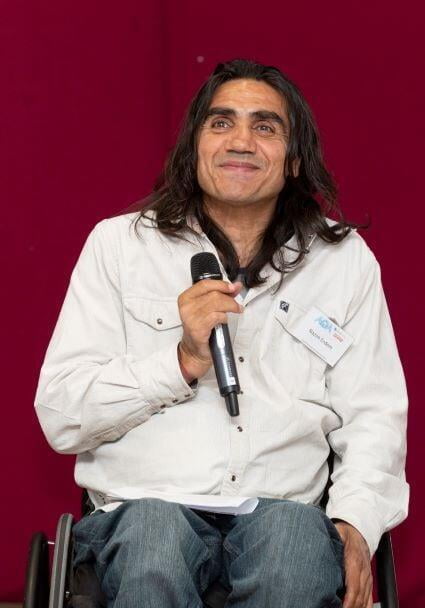
The next step: Peer coaching
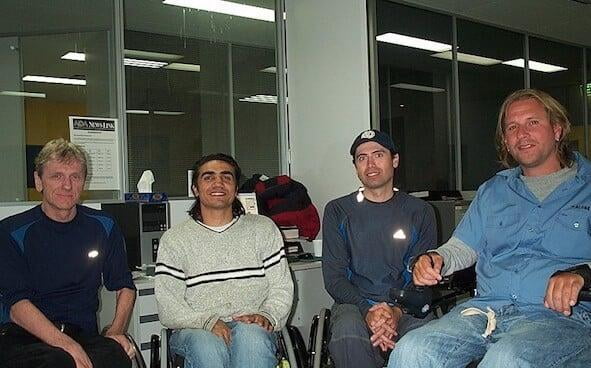
Erdem sees as his next step the fostering of peer coaching, offered as a service that a National Disability Insurance Scheme participant could select as a component of their annual plan.
“That might be wheelchair skills coaching, it might be personal development, it might be peer health coaching, it might be employment coaching or something else,” he explains. “We’re doing workshops with mentors who we want to take the lead in peer coaching.
“Peer Support and our attendant care service, AQA Qualcare, have grown up as distinct departments, but that is changing, and connecting our service provision in these two areas is deliberate.
“Traditionally, AQA services meant AQA personal care, and then there were these other things we would do as outreach.
“Now we need to present all our services as part of a spectrum that AQA offers. People who use our attendant care need to know about other programs AQA runs, so they can be involved in those if they want to be, and vice versa. That includes our peer support. Everyone should know about what the organisation does as a whole.”
- June 30, 2020

